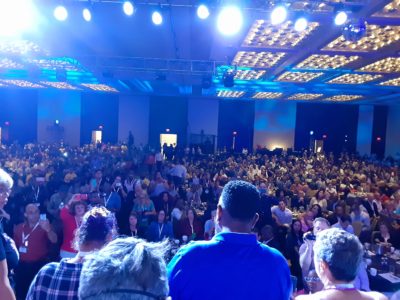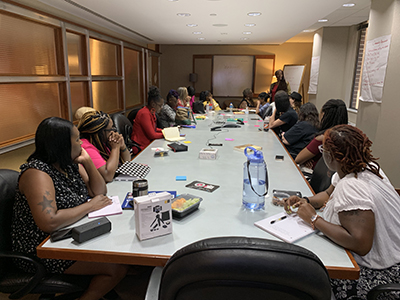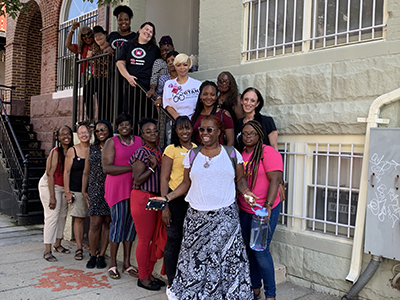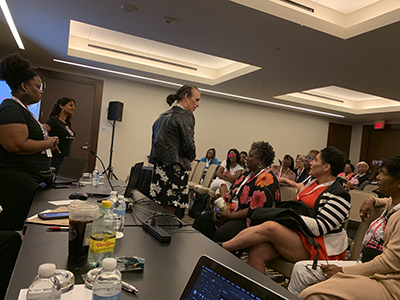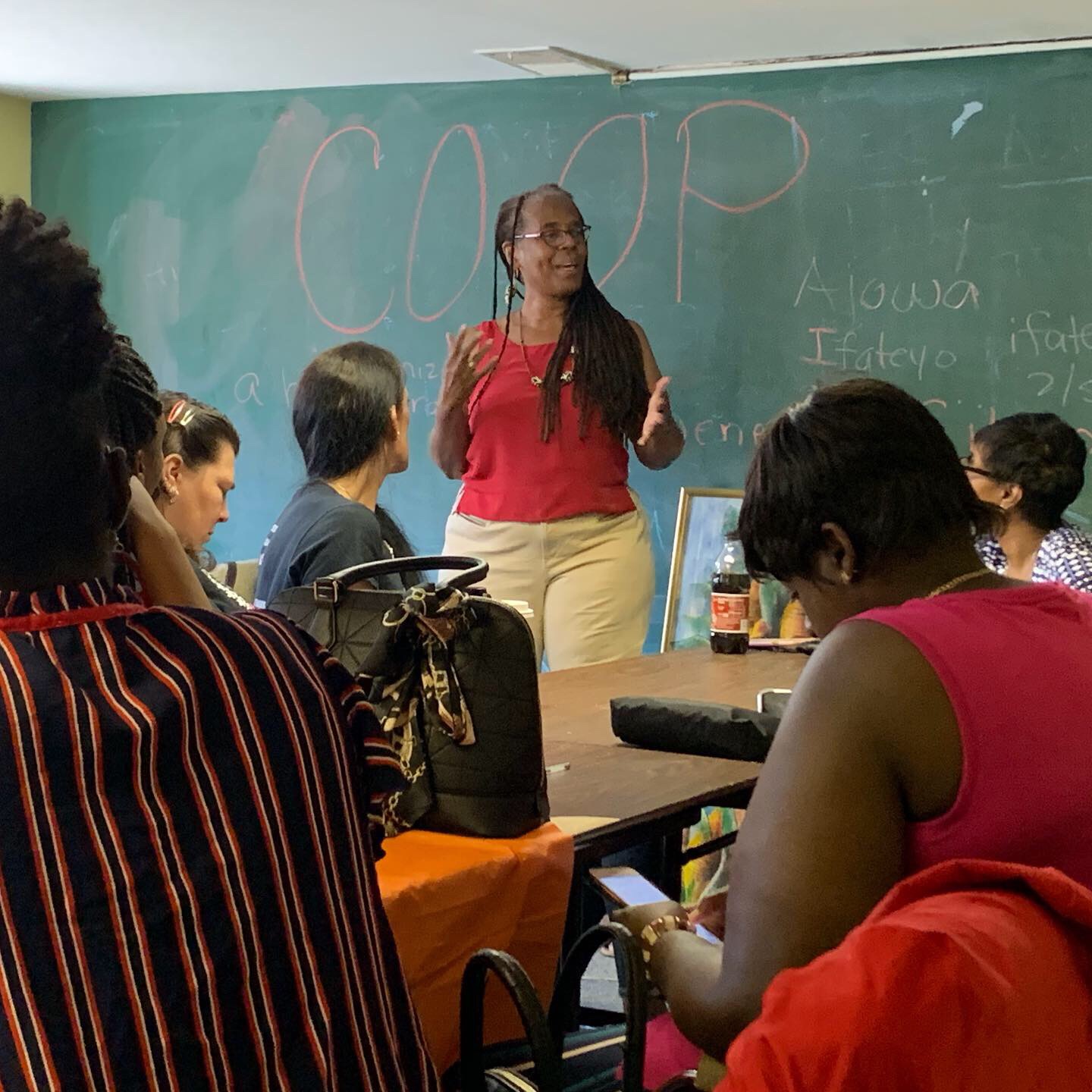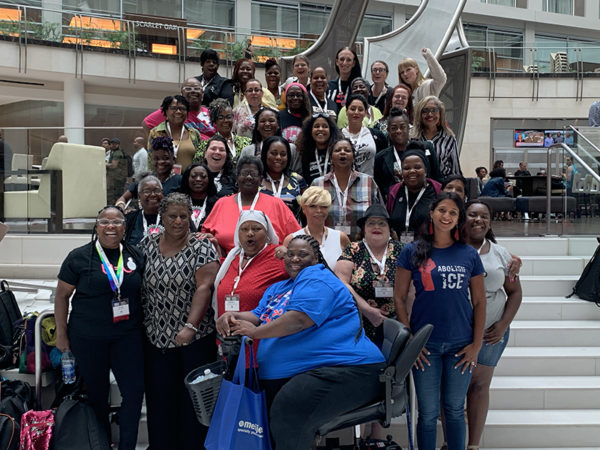October 10, 2019: A month after the 2019 U.S. Conference on AIDS, we asked some of our member spokespeople what was still on their mind from the conference.
One recurring theme was the protest on stage during the plenary with CDC Director Dr. Robert Redfield. Member after member recalled the speak-out as what left the biggest impression on them–calling attention to a critical subject that has gotten relatively little attention and giving them a sense of their own power to get the attention of the CDC as well as MSNBC journalist Joy-Ann Reid, who was moderating the plenary.
The protest was most impactful for me. When it was happening, I felt the urge to join in; I couldn’t help myself. Some people at the social media fellows table said they weren’t sure if they should go or not, but I felt there was no other place for me to be other than on that stage. But when I was up there and started taking pictures, I wanted a picture I could be proud of being there. What is going to be that perfect cover shot that I’m most proud of? It came from being on that stage.
– Shyronn Jones, Atlanta
The protest, led by activists from PWN, the U.S. People Living with HIV Caucus, PrEP4All, and Arianna’s Center, centered on, among other concerns, the administration’s reliance on molecular HIV surveillance (MHS) as a pillar of federal end the epidemic plan, despite any way to guarantee that the data from that surveillance will not be used to criminalize people living with HIV. The data is being collected without informed consent of the people being surveilled.
MHS as an issue stayed on PWN members’ minds both throughout the conference and once they got home.
When I came home–I’m secretary of Houston Ryan White planning council–they were writing a grant, and a piece of it was about molecular HIV surveillance. One of my big fights is community engagement, and the discussion around MHS, they’re saying they’re not going to use this data [for criminalization], but that’s not a guarantee for community. In Southern states that criminalize HIV, they could easily use it down the road. They said they had community [input] and I asked who they had around the table, because nobody in Houston has been around the table; you can’t guarantee us we won’t be criminalized through this surveillance. How do you do meaningful involvement of people living with HIV (MIPA)? Who are you really reaching? [What I got from the conference] helped me being at the council as they’re writing this grant. If you’re going to do something, you need to have at least an open forum for community to tell you what we want and what we don’t want. It looks like you don’t want to hear what we don’t want, because the community is telling you we’re not comfortable with this.
– Tana Pradia, Houston
They were also glad that the protest at the plenary was not the only place they got to voice concerns about federal policies and the federal end the epidemic plan. Jessi Mona Cartwright-Biggs attended the Health Resources and Services Administration (HRSA) listening session on the last day of the conference. “They were listening to people all over the country on ways to engage people living with HIV,” she explained. “We declared we needed to be compensated–not always expected to do these things without compensation.”
Before the conference began, Shyronn, Tana, and Jessi Mona were all part of a cohort of eighteen PWN spokespeople and state leads to attend a full-day training on communications skills for organizing, including messaging and digital organizing, with a guest speaker, journalist Ajowa Ifateyo, who also gave them a tour of the housing cooperative she helped found decades ago.



